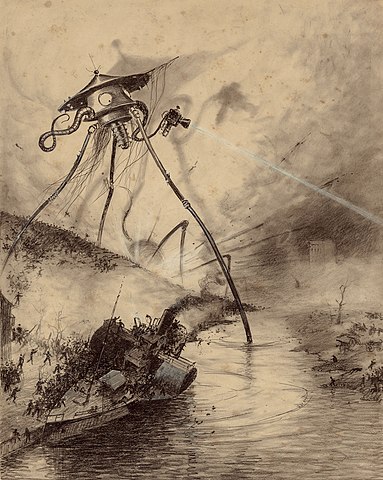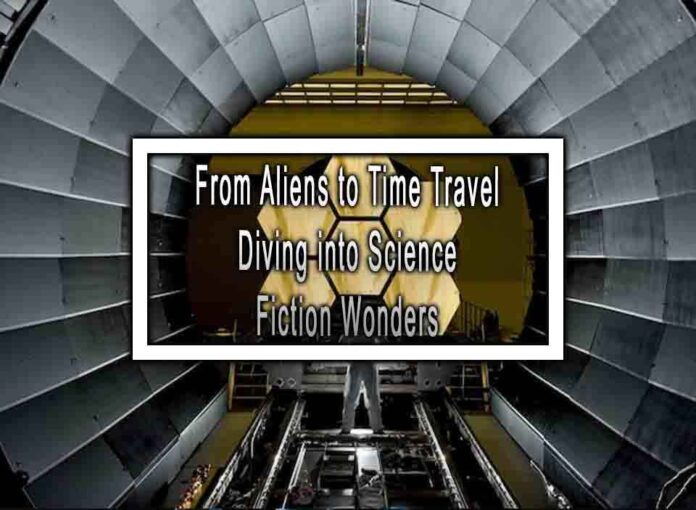Science fiction is a genre that explores the boundaries of human imagination, taking readers and viewers on journeys through speculative worlds and technologies. It encompasses a wide range of topics, including aliens, time travel, space exploration, and much more. Here’s a brief dive into some of the wonders of science fiction:
Aliens and Extraterrestrial Life:
- Science fiction often delves into the possibility of intelligent life beyond Earth. Works like “War of the Worlds” by H.G. Wells and “E.T. the Extra-Terrestrial” by Steven Spielberg have captivated audiences with their portrayals of encounters with alien beings.
Space Exploration:
- The exploration of space and distant galaxies is a central theme in many sci-fi stories. Classics like Arthur C. Clarke’s “2001: A Space Odyssey” and contemporary works like Andy Weir’s “The Martian” explore the challenges and wonders of space travel.
Time Travel:
- Time travel is a popular and mind-bending concept in science fiction. Stories like H.G. Wells’ “The Time Machine” and movies like “Back to the Future” have sparked fascination with the idea of traveling through time.
Artificial Intelligence and Robots:
- AI and robots are common themes in sci-fi literature and film. Isaac Asimov’s “I, Robot” and Philip K. Dick’s “Do Androids Dream of Electric Sheep?” (the basis for “Blade Runner”) delve into the ethics and implications of creating intelligent machines.
Dystopian Futures:
- Dystopian sci-fi explores dark visions of the future, often reflecting societal anxieties. George Orwell’s “1984” and Aldous Huxley’s “Brave New World” are classic examples that comment on surveillance, control, and conformity.
Cyberpunk:
- The cyberpunk subgenre combines elements of high-tech, futuristic settings with gritty, urban landscapes. Works like William Gibson’s “Neuromancer” and movies like “Blade Runner” epitomize this genre.
Alternate Realities:
- Sci-fi frequently explores parallel universes and alternate realities. Philip K. Dick’s “The Man in the High Castle” and the TV series “Fringe” delve into the idea of multiple dimensions and alternate timelines.
Hard Science Fiction:
- Some sci-fi focuses on scientifically plausible scenarios and technologies. Authors like Arthur C. Clarke and Kim Stanley Robinson emphasize scientific accuracy in their works, often inspiring real-world scientific advancements.
Utopian Visions:
- On the flip side of dystopia, sci-fi also envisions utopian societies. Authors like Ursula K. Le Guin, in her “Hainish Cycle” series, explore worlds where social and political systems strive for harmony.
Environmental Themes:
- Climate change and environmental issues are increasingly addressed in science fiction. Books like Kim Stanley Robinson’s “Mars Trilogy” tackle the challenges of terraforming and preserving planets.
Science fiction, as a genre, encourages exploration of the unknown, contemplation of ethical dilemmas, and the stretching of scientific possibilities. It sparks discussions about the future, technology, and the human condition, making it a rich and enduring genre for both creators and consumers of imaginative storytelling.











